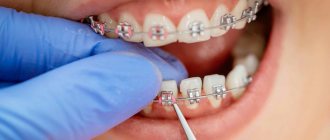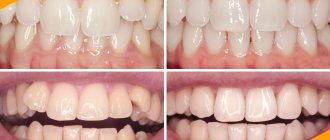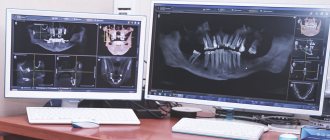Navigation:
- Causes of children's fears
- How to deal with fears: tips for mom
Every parent perceives a visit to the dentist with a child differently.
Many mothers and fathers worry more than children. They fear that the kids will get stressed initially. Then, dental treatment will turn into an ordeal. If a child is afraid of the dentist, he refuses to go to the clinic, sits in a chair and opens his mouth. Such children are capricious, cry, and can throw tantrums. They are frightened by medical instruments and all medical manipulations. Little ones become anxious because they are afraid of a negative atmosphere. Note! If you do not work on such an emotional state, fears and whims significantly complicate therapy and negatively affect the health of the baby.
What to do? Crying and screaming can be avoided if you go to a private pediatric dentistry, where the appointments are conducted by experienced doctors, candidates of medical sciences, and doctors of the highest category who know how to properly communicate with children and distract little patients with pleasant and exciting moments. Proper psychological preparation is necessary. The main task of mothers, fathers, grandmothers, grandfathers is not to alert the child, but to calm the little one, to attune him to the perception of a good doctor. The child should know that he will be safe, that the doctor is kind and friendly.
First, an introductory visit should be held so that a trusting relationship is established between the doctor and the patient. Parents should pay attention to the mental and physical state of their child before visiting the dentist. If the baby is excited or upset, it is better to reschedule the visit. Before this, you need to discuss the need for therapy and play dental clinic with him. Negative emotions will be smoothed out by a desired toy, a treat, or a favorite book. You need to choose the right time to visit. A visit is not advisable when the child has a nap schedule.
When a child is terrified of the dentist, you should thoroughly organize the visit. Bring him to the clinic well-fed, at exactly the indicated time, so that he does not languish while waiting. If shoe covers scare your baby, take him replacement shoes. At age 5 and older, children are able to understand why healthy teeth are so important. Parents need to show their willingness to help, support the baby, and be with him in the office. A psychologist will help children adapt to the new environment. Usually in modern centers he works with children before admission.
Children's fears of visiting the dentist and ways to combat them
Everyone knows that children’s teeth need special attention and proper timely treatment. That is why it is necessary to visit the dentist with your child at least twice a year.
Many kids believe that the dentist is the most terrible doctor in the world. Some children, in order not to go to the dental clinic, are ready to cry, hysterical, just to avoid this unpleasant day of their moment. Therefore, for many parents, a visit to this specialist becomes a real test, which can be overcome with a lot of effort. To avoid this, try to prepare your baby in advance for the first visit to the dentist, because even the unknown can frighten children.
Literature
- Boyko V.V. Recognizing and overcoming fear at a dental appointment // Institute of Dentistry, 2002. – No. 1, 4. – P. 15-23.
- Vinogradova T.F., Snagina N.T. Guide to pediatric dentistry // Medicine, 1995. – pp. 75-83.
- Gashimov R.G., Arakelova M.N. Psychological characteristics of children with dental diseases // Dentistry, 1988. – pp. 58-60.
- Ivanov G.G., Ivanova M.A. Assessment of the psycho-emotional state of children // Childhood Dentistry and Prevention, 2001. – No. 1. – P. 23-26.
- Lepelin A.V., Sutenkov D.Ya., Kazakova L.N. Psycho-emotional stress as the basis of dental phobia and the cause of the development of fear // Pediatric dentistry and prevention, 2004. - No. 3. – P.18-25
Why do children become afraid of the dentist?
Kids experience fear of the dentist in different ways: some are afraid of the procedure itself, while others are afraid of the person who performs it. For example, young children may believe that the doctor is a bad person who can harm them, so he should be avoided in every possible way. Older children may be afraid of the upcoming anesthesia - they think that the needle will cause them terrible pain.
Also, the cause of fear is often unconscious associations that associate dental procedures with something unpleasant and creepy, and in some cases life-threatening. Therefore, in this case, you need to consider each situation separately.
Sometimes fear of visiting a dental clinic can be after a negative experience due to a previous visit. This often happens when adults are violent - to help hold the child during treatment. The baby will remember all this well, and next time he will not want to go into the office at all.
Parents, in the presence of their child, express doubts and worries before visiting the doctor. Children absorb absolutely everything – so their parents’ fears become their fears.
Content:
- Where does the fear of going to the dentist come from?
- The main mistakes of parents
- How to overcome dental phobia
- Contact the professionals!
Parents who care about their child’s health know how important it is to take their child to the dentist in a timely manner. However, many of them face the problem of fear of visiting the dentist's office. What is the reason that a child is afraid to have his teeth treated? And what should you do when it’s time to make another visit to the dentist? Let's try to figure this out.
How to overcome a child's fear of the dentist?
Sometimes it is simply enough to establish contact between the little patient and the dentist. After all, fear exists only in front of faceless figures. The doctor should become an acquaintance for him who can be trusted. Then the child will be able to put aside all worries and allow the doctor to carry out all the necessary manipulations.
Often children have difficulty establishing any contact due to communication problems. In this case, the child is not only afraid of doctors, but also of other people, with the exception of his parents. Then the fear can be very difficult to overcome, but, no matter what, it is real. To do this, the dentist must make a lot of effort.
To ensure that your child does not have fear of dental treatment, pay attention to the following points:
- You need to visit a pediatric dentist. After all, it is he who will be able to find an individual approach to a small patient, and this will allow him to treat or remove teeth almost painlessly and quickly.
- Trust the health of your little one only to a specialist who has sufficient experience working with children.
- Prepare your child to visit the dental clinic in advance. Explain that his teeth must be healthy, otherwise he will not be able to eat food. Children often begin to experience fear of the dentist because their parents set a bad example for them - if in the presence of a child, his father or mother is worried about the future treatment of a tooth or its removal, then parental anxieties will be passed on to the baby, who directly absorbs all this. Therefore, in order to avoid fear of the dentist, you should not talk badly about him, but on the contrary, thank him for the help that was previously provided to you.
- Try to explain to your child as clearly as possible about the need to visit the dentist and dental treatment. From a very early age, prepare your baby for a visit to the dentist. Buy him a brush and toothpaste and try to instill the skills of proper oral and dental care. Tell us how dangerous caries is and its untimely diagnosis and treatment. Try to explain to your child that the help of a dentist is only needed when toothache occurs, and everyone who does not want to be left without teeth visits him, especially at a young age. Do not focus your child’s attention on the need for treatment or tooth extraction. It is better to explain that after examining the patient, the doctor himself decides how to proceed.
- Try not to say words like “hurt” and “scary” when you start discussing the treatment process with your family. If you are planning to visit the dentist, under no circumstances should you reassure your child with the phrases “Don’t be afraid! It doesn’t hurt at all!” or “You’ll just have to be patient for a little while.” Even if the baby is not familiar with such a procedure as dental treatment, he still immediately develops fear. As a psychological preparation, it is better to play with your child, for example, invite him to play the role of Doctor Aibolit and treat his toy’s tooth. This game will help prepare the child for various manipulations that are carried out in the dental office and will relieve him of fear and uncertainty.
- If the child agrees to visit the dentist, offer to fulfill any of his wishes in exchange. Even if he has no problems with his teeth, it is necessary to go to the dentist for the first time for preventive purposes before the age of two. Try to turn this trip into an acquaintance with a doctor, whom he will then visit without fear. It is at this age that the child’s bite and the condition of his teeth are assessed. And if, upon opening his mouth for the first time, the baby sees that the dentist did not cause him pain, then he will be able to visit this doctor without fear.
- In some cases, you can ask the doctor to carry out treatment under local anesthesia. If the baby is bothered by acute pain and the teeth are severely affected by caries, then it is unlikely that they will be treated without anesthesia. Ask your doctor to use one of the pain relief methods - an application, in which a medicine is applied to the gum with a cotton swab, or an injection into the gum. And after some time (usually after a few minutes) the baby will not experience pain during treatment.
- As your child gets older, it will be very difficult to persuade him to visit the dentist. If he begins to be stubborn and capricious, promise to do what the child dreams of in exchange for a visit to the dental clinic. For example, a girl dreams of a new doll, and a boy dreams of a radio-controlled car. Explain that once you visit the dental clinic, his wish will be fulfilled. It is very good if, after finishing the treatment or examination, the doctor himself hands the toy to the little patient. This way, the baby will be able to associate the dentist with a person who brings joy and fulfills wishes.
Interesting facts about people's attitudes towards dentists
Effective painkillers appeared in medicine relatively recently, and in dentistry for a long time anesthesia was used only for the most painful operations. Almost always, dental treatment was carried out “live”, and the patient was forced to endure all the dentist’s manipulations in the oral cavity. After this, powerful impressions remained, which only intensified with each memory and could even develop into a real phobia. By the way, fear of dentists has three scientific names: dentophobia, stomatophobia or odontophobia (all three words are synonyms, but the most established form is dentophobia). Some statistics:
- ;
- approximately 10% of patients experience panic fear before dental treatment;
- in 90% of cases, successful dental treatment in childhood saves a person from dental phobia for life;
- approximately 2% of Russians have never been examined by a dentist in their lives.
;
;
As a rule, fear of dentists develops after severe stress associated with dental treatment. Pain is not necessarily the cause, since a person may experience panic simply from the sensation of strong mechanical effects on the dental tissue or jawbone. In addition, the effectiveness of anesthetic drugs can be significantly reduced due to the patient’s excessive concentration on his sensations or due to drinking alcohol “for courage.”
What if dental phobia cannot be eliminated?
If the patient experiences severe fear that cannot be eliminated, sedation is the best option. This is the name of the procedure that allows you to put the patient into sleep, during which he will not experience any discomfort, but will wake up with healthy teeth. This approach is becoming increasingly popular, especially in pediatric dentistry. It is important to understand that the situation has improved greatly over the past decade. Natadent dentistry has a wide range of local and general anesthesia products. Almost any manipulation in the oral cavity involves pain relief, so the days of painful dental treatment are a thing of the past. The best way to understand this and overcome dental phobia forever is to visit the dentist more often in order to promptly identify and eliminate any dental problems in the initial stages.
Psychological assistance for dental phobia
We bring to your attention some professional advice on how to overcome fear of dentists, from psychotherapists who regularly help patients solve this problem:
- ;
- You need to understand for yourself that dental health is the basis for the health of the whole body, so it is imperative to treat them. And the sooner help is provided, the faster and simpler the procedure will be.
- If the patient cannot overcome fear on his own, then you can always use the help of a psychotherapist or psychoanalyst.
- Confidence in the competence of doctors helps to significantly reduce fear. Therefore, you need to immediately choose a good clinic that uses modern equipment and anesthesia methods.
- It is advisable to create a trusting atmosphere, so you will know that the dentist is striving to make the treatment process as comfortable as possible for you. It’s good if this is a friend or family doctor whom you always visit.
- To understand how to overcome fear of the dentist, you need to find out what causes this fear. Most often this is a misconception about the treatment process. Just talk to your doctor and ask what technologies he will use to reduce pain.
- It is advisable that the clinic be free of odors of bleach, formaldehyde, other chemicals and medications. Often these odors become the cause of psychological discomfort.
;
;
;
;
;









